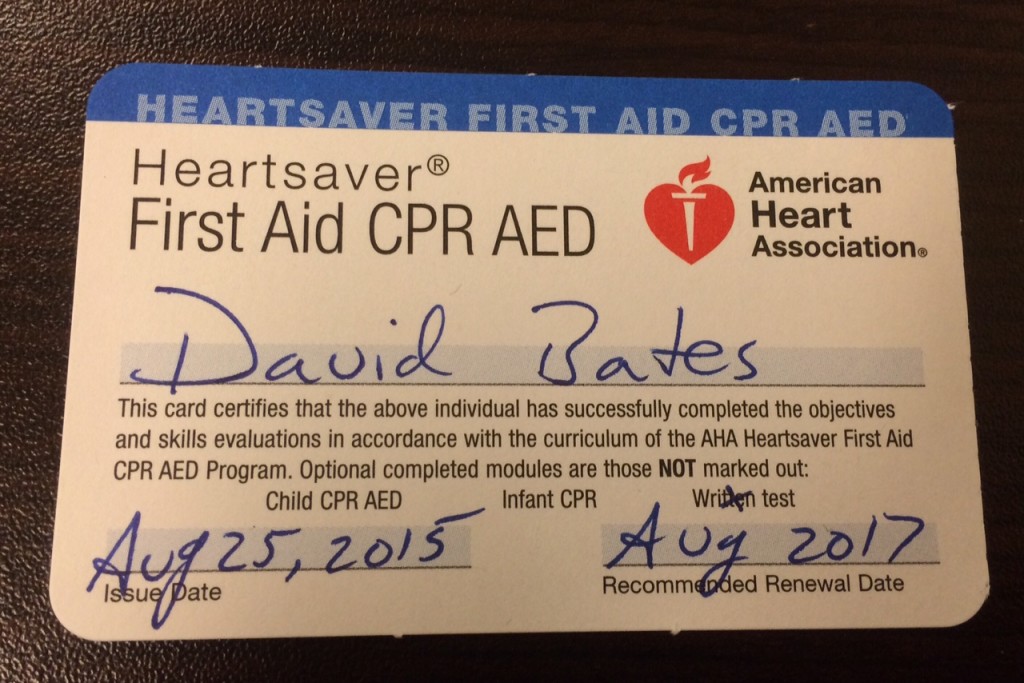Crisis-Ready
If you’ll indulge me, today I’d like to do a little bit of a PSA. This week I ticked off a long-standing item off my To Do List: Take a CPR course.

As a teenager I achieved the Bronze Medallion, a test which is taken by anyone who wants to be a lifeguard. It involves an extended series of challenges in a pool (swimming with your clothes on, picking up bricks from the bottom of the pool etc) but it also involves a practical and written exam concerning CPR. I did all this back in the early Stone Age, so for quite a few years I’ve been meaning to do a refresher course…
If I wanted to do a CPR course in England I would talk to the St. John Ambulance. However, in America I wasn’t sure to whom I should speak. I’ve since found out that the American Heart Association are the people to contact. However, as good fortune would have it, on Monday I drove through the Industrial District on my way to a coffee shop and passed a sign for CPR classes with the group called One Ounce of Prevention. So, as I was drinking my morning latté, I fired up Google, tracked down their contact details and gave them a call. By the time I hung up I was booked in for their class the following day.
The course itself was four hours long and covered CPR for adults and infants, the use of an AED, as well as basic First Aid (burns, breaks etc). Although the recommended ratio of breaths to chest compressions had changed (it does this practically every year) and there are fewer recommended checks prior to starting CPR, I was quite pleased that I remembered a good deal from the training from my teenage years.
For me though, the real benefit of the course was the simulated emergencies. It’s really quite terrifying how your mind can go completely blank when confronted by an unconscious body, even if it’s just a mannequin! “Wait, what did I need to check? What’s the next thing I have to do?” It’s really good to run through a few scenarios and get the routine more established in your head.
So, here’s my PSA… 88% of cardiac arrests occur outside of a hospital. What would you do if you were confronted by someone unconscious and not breathing? Our instructor told us that nationwide there’s an average 9% chance of survival, but that around Seattle more people know CPR so that number rises to 19%. In Detroit, however, fewer people know what to do and the number is basically 0%… Would you know what to do?